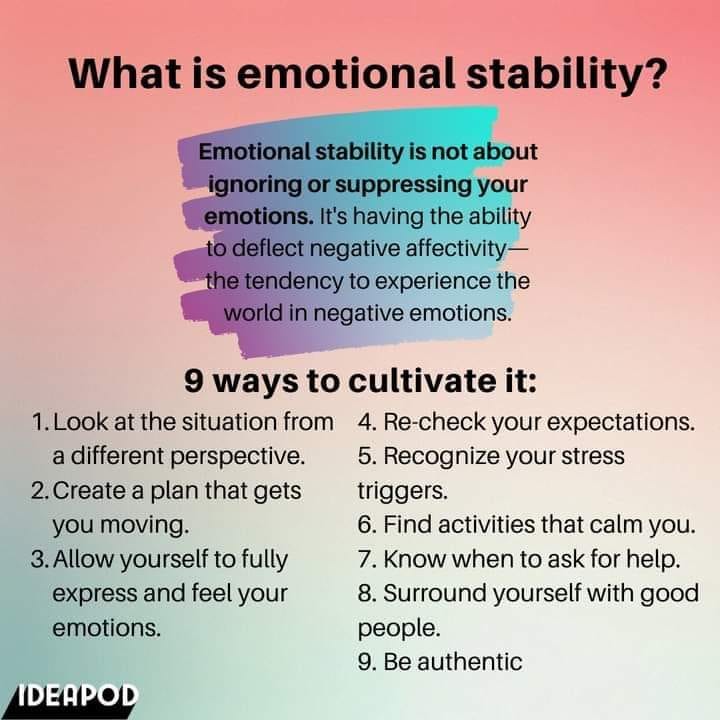Health: Emotional stability
Questions we can ask ourselves to optimize our emotional and mental health and well-being
Some questions we can ask ourselves in our quest for emotional stability and optimizing our emotional and mental health and well-being:
▶️ What does emotional stability feel and look like to me?
▶️ When have I felt the most stable? What was happening for me in my life at that time?
▶️ What are the conditions that create optimal emotional stability for me? Think about: family, relationships, activities and work conditions.
▶️ What changes do I need to make to achieve the most emotional stability for myself?
▶️ What steps do I need to take to create optimal emotional stability, to thrive and live my best and healthiest life?
Resilience
Resilience can be defined as “the psychological quality that allows some people to be knocked down by the adversities of life and come back at least as strong as before. Rather than letting difficulties, traumatic events, or failure overcome them and drain their resolve, highly resilient people find a way to change course, emotionally heal, and continue moving toward their goals.” (Psychology Today).
Cherry (2022) from VeryWellMind writes
“People who remain calm in the face of disaster have what psychologists call resilience.
People with resilience are able to utilize their skills and strengths to cope and recover from life's challenges, which can include those related to…” adverse and challenging life events.
Read more about Resilience here:
Cherry, K. (2022). What is resilience? VeryWellMind. Retrieved on April 30, 2022 from https://www.verywellmind.com/what-is-resilience-2795059.
Psychology Today. Resilience. Retrieved on April 30, 2022 from https://www.psychologytoday.com/us/basics/resilience.




